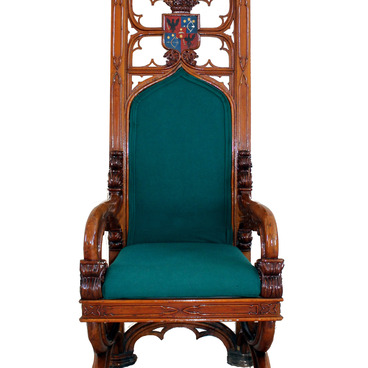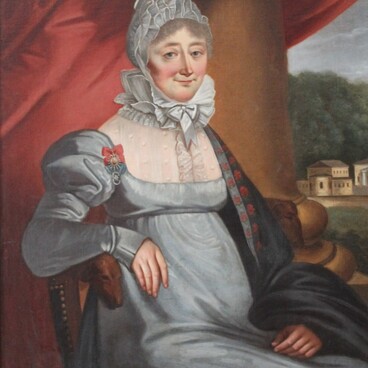Vladimir Orlov (1743–1831) was the youngest of the Orlov brothers. He never was a military man since he had poor health from his childhood. At the age of 20, he was sent abroad by his brothers. For three years, he studied at Leipzig University. In 1766, after Vladimir returned to Russia, Catherine the Great bestowed on him the title of chamber-cadet and appointed him director of the Academy of Sciences. He was only 24 at the time. The Empress said he had an ‘eagle eye like his brothers’ (Orlov comes from the Russian word ‘oryol’ meaning ‘eagle’) and he ‘won’t tolerate disorder.’
Catherine detected his philosophical abilities, his penchant for science, reading, philosophical reflections, as well as some pedantry with which he approached the execution of the assigned task. She believed all these qualities might be of help to put things in order in the Academy of Sciences where German scientists dominated at the time.
The young director organized expeditions to study the European and Asian parts of the Empire in order to explore the soil, water, and landscape. He also continued to pay attention to scientists-nuggets from the people - he sent them to study abroad and often paid for this study out of his own pocket. Once got keen on astronomy in his early youth, Vladimir Orlov paid great attention to the development of this field in Russia. When an important astronomic event was expected, like the transit of Venus across the sun, he organised an exchange of experience between Russian and foreign astronomers. As a director of the Academy which had hard times then, Orlov has done a lot. However, he could never make it “prosper.”
In 1770, Orlov was granted a chamberlain and went on a trip to Russia, during which he kept his diary as usual. June 1771, he went abroad on a medical trip. By autumn 1773, he has returned from Saint Petersburg. During the following year, he retired in the rank of lieutenant general.
Having cut off the court, Vladimir Orlov took up the management of his estate Otrada near Moscow. After the death of his legal heirs, Orlov raised his grandson Vladimir, the son of his daughter Natalia. Orlov died at the age of 88 in 1831. Vladimir Davydov became a granddad’s heir and received the title count Orlov-Davydov.
Catherine detected his philosophical abilities, his penchant for science, reading, philosophical reflections, as well as some pedantry with which he approached the execution of the assigned task. She believed all these qualities might be of help to put things in order in the Academy of Sciences where German scientists dominated at the time.
The young director organized expeditions to study the European and Asian parts of the Empire in order to explore the soil, water, and landscape. He also continued to pay attention to scientists-nuggets from the people - he sent them to study abroad and often paid for this study out of his own pocket. Once got keen on astronomy in his early youth, Vladimir Orlov paid great attention to the development of this field in Russia. When an important astronomic event was expected, like the transit of Venus across the sun, he organised an exchange of experience between Russian and foreign astronomers. As a director of the Academy which had hard times then, Orlov has done a lot. However, he could never make it “prosper.”
In 1770, Orlov was granted a chamberlain and went on a trip to Russia, during which he kept his diary as usual. June 1771, he went abroad on a medical trip. By autumn 1773, he has returned from Saint Petersburg. During the following year, he retired in the rank of lieutenant general.
Having cut off the court, Vladimir Orlov took up the management of his estate Otrada near Moscow. After the death of his legal heirs, Orlov raised his grandson Vladimir, the son of his daughter Natalia. Orlov died at the age of 88 in 1831. Vladimir Davydov became a granddad’s heir and received the title count Orlov-Davydov.

